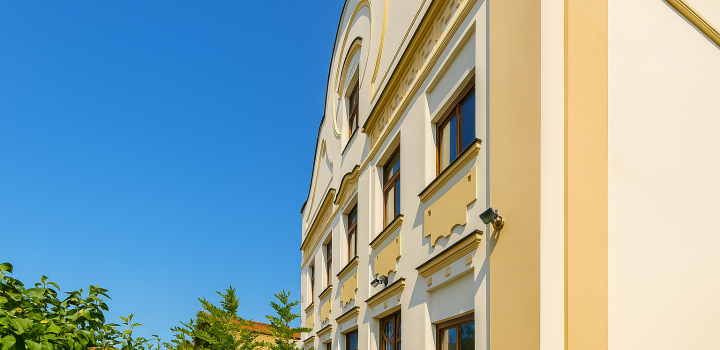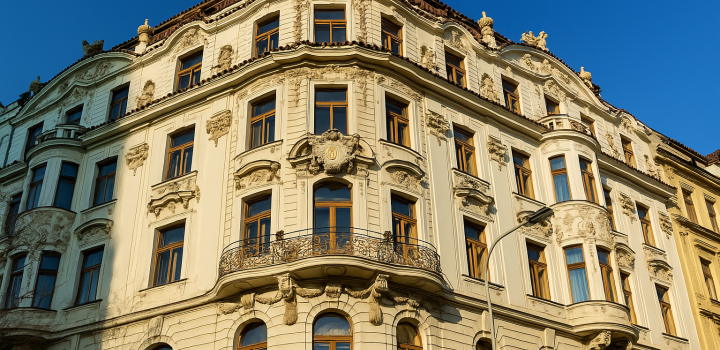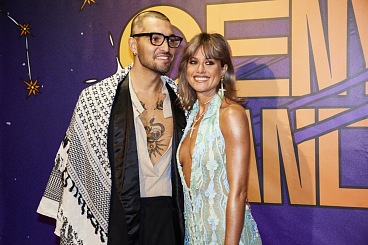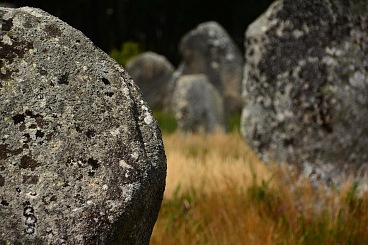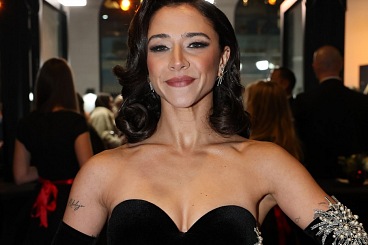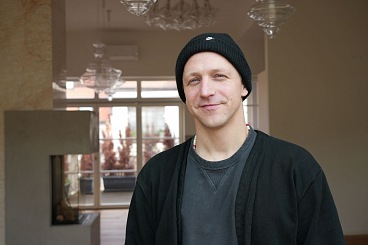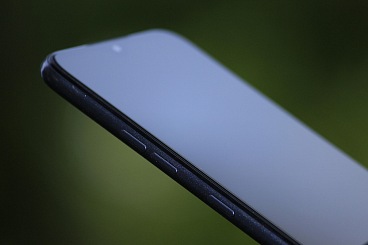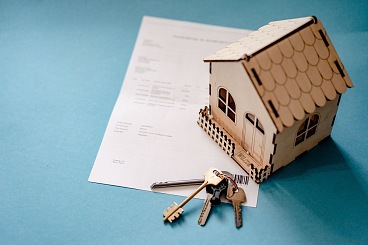Fast Confession - TV presenter Karel Voříšek: Only a fool can be permanently happy
When you meet Karel Voříšek in the morning, you end up in a great mood for the rest of the day; we at LP-Life.com's editorial office can guarantee that. The Czech TV presenter, whom you have been seeing on the CNN Prima News channel's Prime Time News in recent years, never seems to be in a bad mood. Whether it is a functioning long-term partnership, a stable prestigious job or just a positive approach to life, you can find out in this interview. What is certain, though, according to Karel, is that anyone can be as happy as he is. It just takes will and lifelong training... Plus, every crisis is an opportunity!
I saw you on the news last night, today we're talking quite early in the morning. How are you feeling?
I'm more of a night owl than an early bird. But I feel good, I'm in a nice company, we're talking. I don't think we're missing anything. In addition, I have a theory that one should tone into a day. In the morning, in my opinion, one makes the fundamental mistake of imagining all the horrors that await them when they get up. We should tune into the day. Imagine the horror, but turn it into a pleasant thing. Not to say "now I have to get up and go to the tax office, where there will be an unpleasant lady and she will definitely fine me." No, you have to say, "I'm going to the office in a minute, maybe the unpleasant lady won't be there, and the fine may be lower." Reframing our apparent personal worries, which we will find out later are no worries at all. It is all only in our head. As a wise person once said, "I've had a lot of tragedies in my head, most of which never happened."
You've been following this all your life?
That might be overstating it. I try to follow it. I practice it, it's really lifelong practice. I wonder what will come of it one day, up there or down below.
How have you managed during the last covid year?
It's not easy, because I'm at the centre of events, that is, on the news. One piece of information after another is being thrown at the audience, but also at me. One is not immune, you internalize a lot of it. I think this year, as I see it in myself, was not only a year for some missed opportunities, when one could not go somewhere or do one's job, but it was also a year when you could look into yourself a lot.
How did you look into yourself?
I dug very deep into the mine of my self. I think of myself as a great observer of life. I observe life around me, different situations, relationships between people. One example for all. For many people, the pandemic has either destroyed or strengthened their relationship. My boyfriend and I were at home a lot, Vláďa worked from home, I missed a lot of events outside of TV. We were always together. It didn't break the relationship, on the contrary, I think it strengthened it.
But your relationship has a strong foundation, you've been together for almost twenty years.
Yes, almost twenty years. You are right, a solid foundation. But let's look at what happens when someone's relationship falls apart. Do you have a breakdown? Sure, it's not nice, but even if you don't see it now, it can help you. The pandemic put relationships to a test. Those that had been unsteady before it did not last. When a thing doesn't work, you get rid of it. A relationship is not a thing, but when it doesn't work, is it worth clinging to it at any cost? I don't think so, and in this sense, the pandemic house arrest delivered the final blow to a lot of cracked relationships. It may hurt now, but living a lie hurts more.
You are right. The pandemic brought about a crisis that might not have come, and revealed much about the partners.
Yes. But every crisis, as the Chinese say, is an opportunity.
What did you learn about your partner? Or yourself?
A thing I learned about Vláďa that I hadn't known before is that he can cook well. He pampered me culinarily. We had more time for each other, we talked, we discussed everything possible and impossible, we were together more.
Is there still something to talk about after twenty years?
It may be unbelievable, but there still is.
Do you talk about politics at home?
Of course, we talk about politics, about what is happening around us. Vláďa is a spokesman and head of the communications department at the Ministry of Justice, having previously been at the Ministry of Labor and Social Affairs, Interior, Municipality. Over the years, I have also been interested in politics and things around me in the news. So yes, it's a thing for us every day, we talk about it. But one thing is important. When you have evening conversations about politics or other things that upset you, or you have differing opinions about them, it is extremely important that just before you go to bed you say that it doesn't matter, the most important thing in the world is that we have each other.
Do you share the same or similar views? If not, does the five-minute rule still apply to you?
Yes. Helenka and Otík Ševčík taught us the rule of five minutes, which I embodied in my book Štěstí se dá naučit (Happiness can be learned), aka my life without fear and bread rolls. It's an amazing rule. You argue, but the amount of time you don't talk to each other should not exceed five minutes.
What if it exceeds that?
This is lifelong training. The important thing is that you can only practice it with somebody who you really like and who you care about. When you argue with somebody and see that you have gone too far, it is hard to take it back, for the other person too. The helping hand, which is the five-minute rule, is missing there. After three or four minutes, when we would like to talk to each other and discuss it further, but vanity prevents it, we say, "it's been five minutes," that's a question that breaks the ice. It works, but only when you love each other, when you care about each other.
How many books have you written?
So far, I have four books to my name. Jak být přesvědčivý a neztratit se v davu (How to be convincing and not get lost in the crowd), which I wrote with Jitka Vysekalová, president of the Czech Marketing Company. Then I put together a book of anecdotes called Osudová životních šansoniérů (The Fate of lifestyle chansonniers), dedicated and named after a poem I wrote to Hana Hegerová. The other two books are already mentioned. Štěstí se dá naučit (Happiness can be learned), and so far the last is Žij teď: Cesta za ajurvédou (Live Now: The Road to Ayurveda), describing the journey of myself, Vláďa and our friend Zuzka Zwiebel, to the south of India in search of Ayurveda, ie the science of life. It is full of practical recommendations for both spiritual and medical affairs.
Haven't you thought about writing another book in the past year?
I have a lot of ideas for other books in my head, but I didn't want to write it on a planned basis with the pandemic and all the emotions. I want to keep some distance.
Live now and be happy, it's all nice, but very hypothetical for me personally. No matter how hard I try, I go back to past wrongs, fear of the future and so on. Is it really possible to live in the moment and happily?
That's a good question from you and a difficult answer from me. I would say that it rests in everyone's hands. I a priori do not believe in people who walk around with a wide smile and spread optimism, are constantly happy and radiant. In that case, I don't ask them what books they read, but what pills they take. Only a fool can be permanently happy. In a good sense.
What I mean by that, I've already talked about it, it's lifelong training. When you think about it and try it, you don't give up, you end up thinking about the things regarding personal happiness but also failures, you think about them, you try to do things differently. As Tolstoy said, for the existence of happiness one must believe that it really exists. But a lot of people already have the idea that happiness is nonsense, you can't find it. These are thoughts that swirl around in your head, infest it, the brain then actually controls you and at the same time robs you of small feelings of happiness.
That is, it's all in the brain and in our thoughts. There are people who don't think about it, they say to themselves "happiness, it doesn't concern me, now I'm breaking up with someone, that's the end of life". But it's not true. After five, two or three years, you will find that it has helped you immensely, but we have already talked about that.
Do you believe in affirmations, saying to oneself every day "I am beautiful and thin, I will meet the one"? Do you think it works?
It may work for some, but not for others. The most beautiful and mysterious thing about what we are talking about is that each of us is different. So don't trust universal advice. In my opinion, everyone in life has to find their own way. When I teach rhetoric, I tell people, "you know, it would be extremely easy to bring a picture or a video of someone and say, 'Do it like this and you'll be fine.' It does not work like that.
Everyone should look for a way in themselves that suits them. So it is with happiness or with the rule of living in the now. A girl wants to be like Madonna, so she dresses like Madonna, tries to sing like her, but it's still not Madonna. My friend Honza Mühlfeit says: "The world is full of copies, why not be original". We forget that. And that deprives us of our originality, because we want to look or be like someone else. As a result, we lose a good chunk of ourselves and our personal happiness. Just like when we keep trying to get in someone's good graces and forget to love ourselves.
On Prima TV, you are the most experienced presenter, the greatest pro. Younger colleagues around you are still learning. Do they come to you for advice?
I don't care if someone is the biggest pro or if someone is learning. I'm still learning.
Others should too.
I think it's mutual. Even if someone doesn't admit it, I think we observe each other in the industry, by the way, it's one of the ways I teach rhetoric and persuasive behavior. Don't have idols, but look around carefully, tell me, why is it that this nice lady appealed to me so much that I originally wanted to have only coffee, but also ordered a cake? Note the negatives. For example, in a lecture, someone is talking and you say to yourself - they're so boring, I hope I don't talk like that. There are plenty of examples of this and that around, in a good sense of the word all you have to do is steal them and graft them on, try them out.
Who have you observed like that?
Richard Quest from CNN appealed to me a lot. An extremely lively presenter who practically reaches through the screen. Suddenly you feel that his gestures, intonation, everything is with you in the living room. It draws you into the action and won't let you go.
In Fast Confession, you said that you were looking forward to some travel. Where will you be going?
I don't know, we're in the planning stage.
As far as I know, you were supposed to go to New York. But that didn't work out because of covid.
Yes, Vláďa had been promised a trip to America, unfortunately, it didn't work out. Although I must admit that this is not exactly my dream destination. I love Asia, fortunately, Vláďa does too. We thought we would need more time for America. For example, a month or two, take a car and drive around, but you still won't have time for everything.
You said that Vláďa cooks well. Lots of people have gained weight during covid. How about you? How do you maintain your physique, do you exercise?
Yes, we both work out, but then we also walk a lot around Prague. Vláďa has an advantage. He regularly walks to work and back, so he easily racks up ten thousand steps a day. I try to walk, but still, I prefer to commute to work by car. It also helps that we are both gluten-free, I write about that in my book Štěstí se dá naučit, and we have discovered the magic of intermittent fasting. But again, everyone should search for their own path, gather information, try and find out what will help you, go for it, stick to it.
Let's end the conversation on a positive note.
I've recently tested positive for covid, how about you? (laughs)
I know that, but you had mild symptoms, didn't you?
Yes, fortunately. When Vláďa got sick, I thought, it's probably my turn. I accepted it, if it's supposed to happen, better than getting it from a stranger. In addition, as Vláďa was a few days ahead of me, he knew what I was going to go through in a day or two.
What about vaccinations? Your category isn't eligible yet.
I'm not rushing into it, I think going through the disease is a natural vaccination.
Imagine that everything is the same, there is no covid, everything is open. What are you looking forward to? What will you do first?









